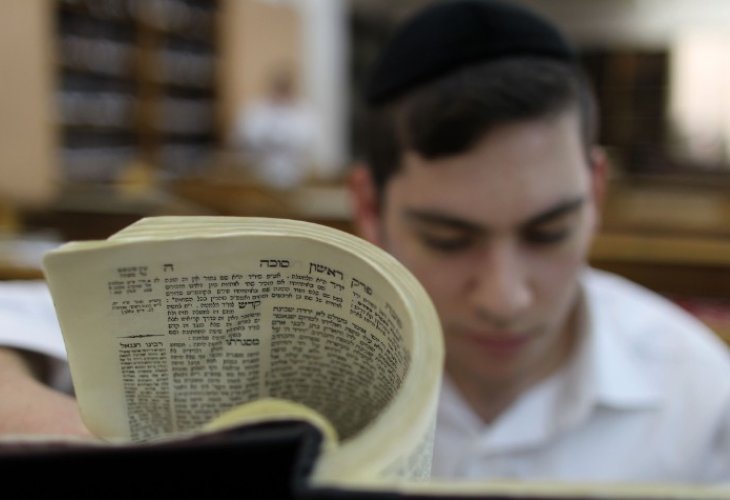Jewish Law
Daily Torah Learning: Where Does Daf Yomi Fit In?
Rabbi Ovadia Yosef teaches that Torah learning must include halacha. Here's what to know about balancing Daf Yomi and daily mitzvah study
- Hidabroot
- |Updated
 (Illustrative photo: Nati Shohat / Flash 90)
(Illustrative photo: Nati Shohat / Flash 90)The mitzvah of learning Torah is one of the most powerful and central commandments in Judaism. In Tractate Kiddushin (30a), the Gemara teaches: “And you shall teach them diligently to your children” from here, our Sages learn that a person should divide their Torah learning into three parts: one-third Scripture (like Chumash, Prophets, and Writings), one-third Mishnah, and one-third Talmud.
The Rambam (Maimonides) codifies this in Hilchot Talmud Torah, explaining that a person should divide their available study time accordingly. For example, if someone works for a living three hours a day and studies Torah for nine hours, those nine hours should be split equally: three hours for Scripture, three for Oral Torah like the Mishnah, and three for deep analysis, understanding the flow of Torah law from start to finish, including how to derive practical rulings about what is permitted or forbidden.
Over the generations, rabbis and scholars have discussed how this applies in practice, especially for working people who don’t have nine hours to study each day. One popular method that has grown in recent years is Daf Yomi, a daily cycle of learning one page of Talmud each day, finishing the entire Talmud in about 7½ years. This is a tremendous and inspiring accomplishment, but is it enough to fulfill the halachic (Jewish legal) obligation of daily Torah study?
Many halachic authorities, including Rabbi Ovadia Yosef, have addressed this question. While Daf Yomi is clearly a great merit, especially when studied with the classic commentaries of Rashi and Tosafot, it may not be enough on its own.
That’s because Torah learning isn’t just about acquiring knowledge but it’s about knowing how to live as a Jew. The Talmud teaches: “Whoever studies halachot (Jewish laws) every day is assured a place in the World to Come” (Megillah 28b). This refers specifically to learning practical Jewish law like how to keep Shabbat, how to keep kosher, how to pray, and how to interact with others according to the Torah.
Rabbi Ovadia Yosef wrote that it is not enough for most people to rely only on Daf Yomi without learning halacha. In fact, in many Sephardic communities, it was always the custom to listen daily to a halacha shiur (lesson), often taught by a local Torah scholar. Sadly, in many places today, those classes have stopped and replaced by Daf Yomi, which many see as sufficient. But without learning halacha, how can a person know what the Torah expects of them in day-to-day life?
Rabbi Yonatan Eybeschutz famously wrote in Yaarot Devash that anyone who hasn’t learned the halachot (laws) of Shabbat two or three times thoroughly cannot avoid stumbling, either in biblical or rabbinic violations of Shabbat. That’s how serious and detailed halacha can be.
Therefore, ideally, a person should try to study both Daf Yomi and halacha daily. If time allows, that’s the best way to grow in Torah knowledge and also fulfill the mitzvah of knowing how to live according to Hashem’s will. But if someone only has time for one class each day, Rabbi Ovadia Yosef ruled that it’s better to choose halacha, because without it, we simply won’t know how to fulfill the commandments properly.
And what about women? While women are not obligated in the mitzvah of Torah study in the same way as men, they too have a responsibility to know Jewish law especially in areas that apply to them. Saying Tehillim (Psalms) each day is a beautiful and powerful practice, but it should not take the place of learning halacha. Even a short daily lesson in Jewish law can help women feel more connected and more confident in their observance.

